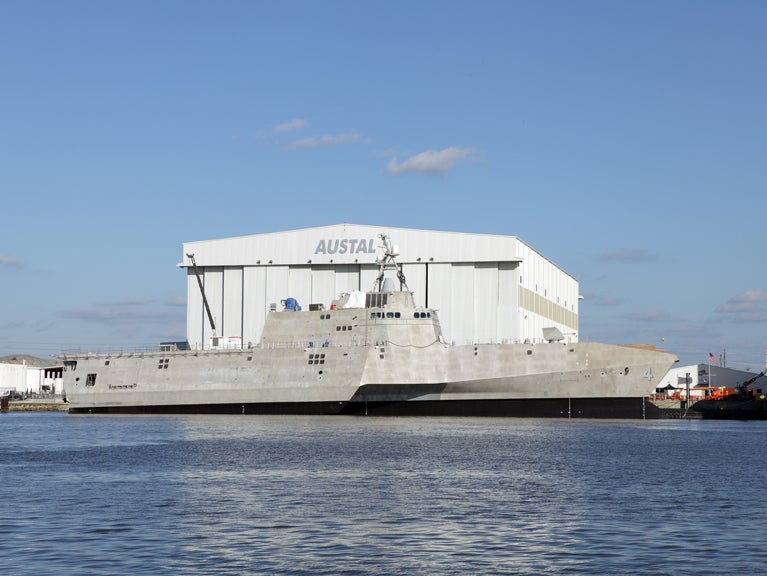
The US Navy’s second Independence-class Littoral Combat Ship, Coronado (LCS 4), has successfully completed its main engine light-off following completion of the fuel load and testing of all four generators.
Conducted by Austal, the main engine light-off onboard the 127m-long LCS 4 included two MTU 9,100kW 20V 8000 M71 propulsion diesel engines and two GE Aviation-built 22,000kW GE LM2500 gas turbine engines.
Austal USA interim president and chief financial officer Brian Leathers said the LCS team would now move towards sea trials in the near future.
Capable of achieving IMO MARPOL NOx emission certification and delivering up to 12,200bhp (9,100kW) of continuous power, MTU’s Series 8000 has been designed to enable the ship to consume less than 190g/kWh of fuel.
GE Aviation has delivered more than 750 of its LM2500 marine gas turbines to power some 400 ships, including fast ferries, coastguard cutters, supply vessels and cruise ships for 30 navies worldwide.
Previously, the US Navy awarded a $3.5bn contract to Austal to build and deliver an additional ten LCSs to join USS Independence (LCS 2), which was commissioned in January 2010.
The high-speed, manoeuvrable combat ship has a full-load displacement of 2,637t, an operational range of 4,300nm and can cruise at a speed of 40k.
The LCS programme aims to fill the critical, urgent operational combat requirements gaps currently in the US Navy for defeating littoral threats and provide access and dominance in coastal waters.
General Dynamics Advanced Information Systems is serving as the ship systems integrator for the LCS programme. It is responsible for design, integration and testing of the ship’s electronic systems for combat, networks, and seaframe control.
Image: US Navy’s Independence-class Coronado (LCS 4) ship docked at Austal Shipyard facility. Photo: © Austal.




